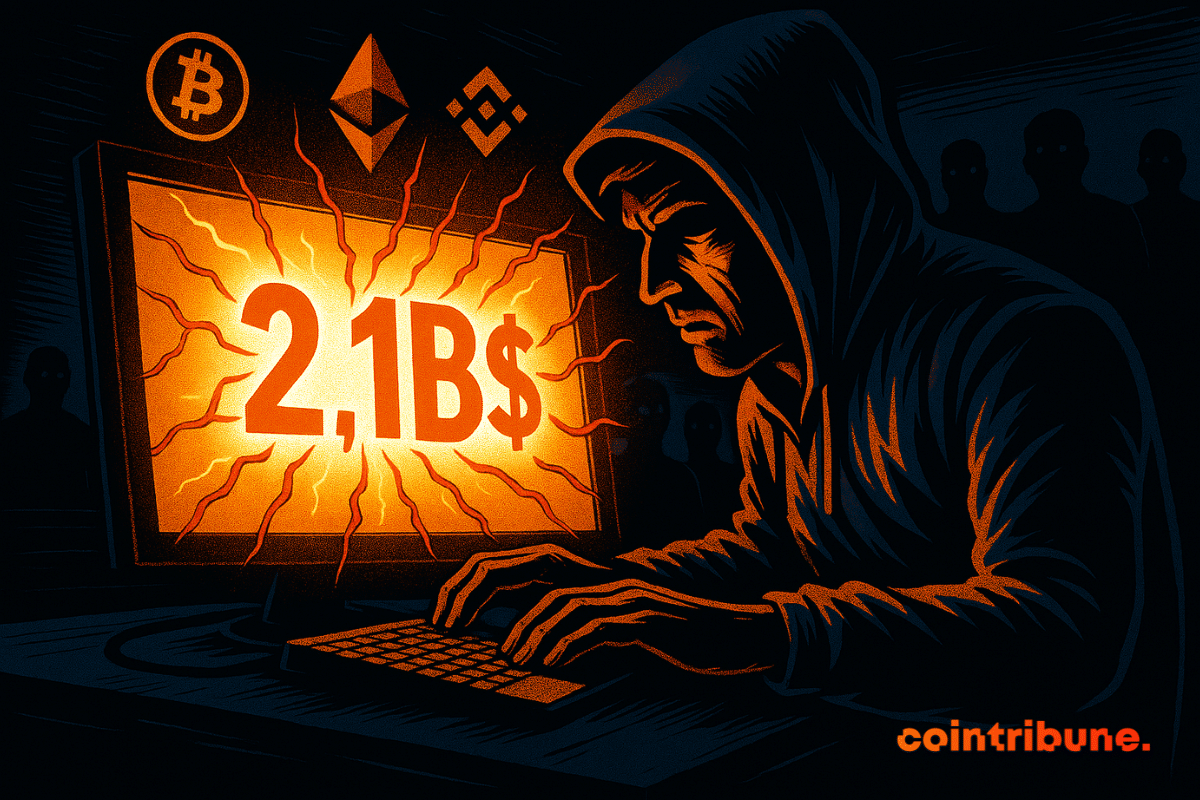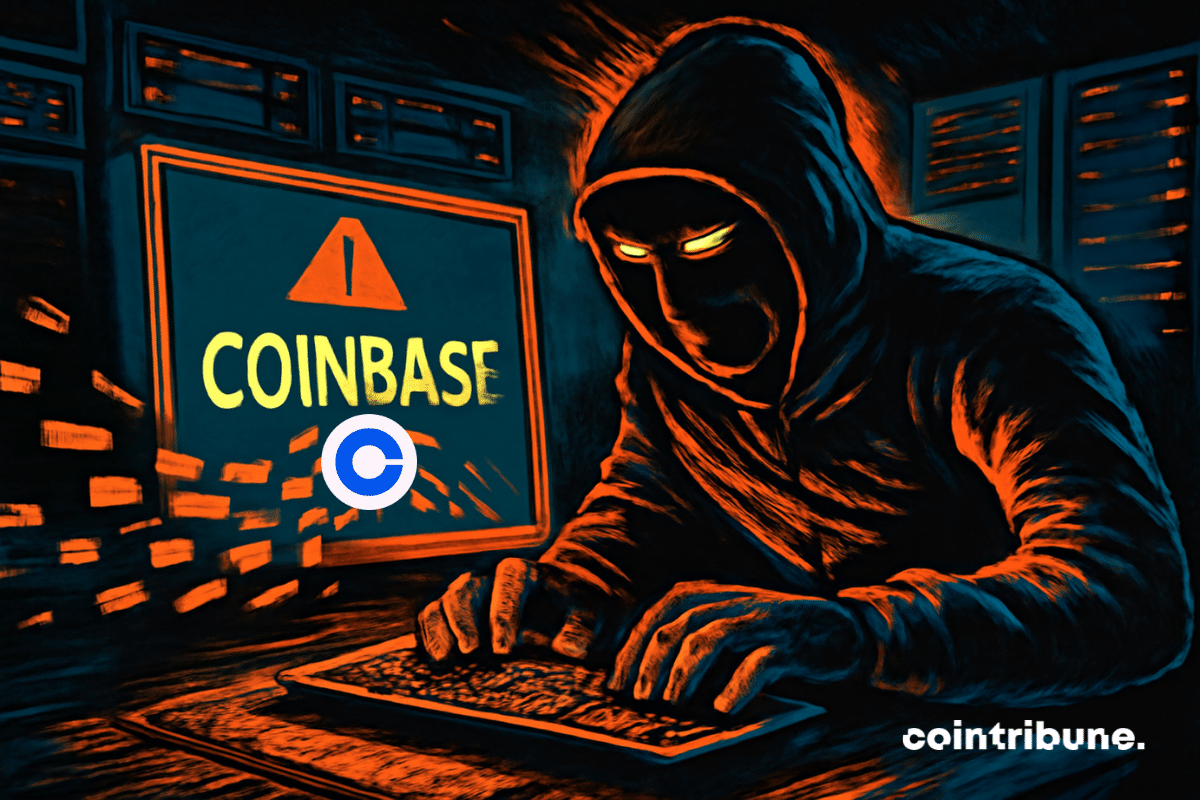Crypto is stolen in 2025: from private keys to state-sponsored attacks. Bybit, a monumental hack. When governments take an interest in crypto-thefts, the game changes completely. Explanations below.
Hack
As they clash with missile strikes, Israel and Iran are launching attacks... on the blockchain. Nobitex has suffered from it, cryptocurrency hacked, propaganda unleashed.
The Sui foundation expresses its support for the Cetus proposal to recover the funds stolen during the hack.
More than 69,000 Coinbase customers victims of an internal crypto attack. We provide you with all the details in this article!
Cybersecurity is no longer an abstract issue for players in the crypto space. At Coinbase, a recent leak of personal data has triggered a tangible risk: the risk of physical attacks. Michael Arrington, founder of TechCrunch, states that this breach "will lead to deaths." In an ecosystem where anonymity is often a guarantee of security, this incident raises a latent concern: that digital vulnerabilities may spill over into the real world.
Bribed agents, massive data leaks, exposed clients… The crypto exchange Coinbase in the middle of judicial turmoil. Details here!
Coinbase, the largest American crypto exchange platform, has just suffered a large-scale cyberattack involving the leak of sensitive data from about 1% of its users. This security breach comes at a particularly delicate time for the company, just days before its entry into the prestigious S&P 500 index. What will be the consequences for this giant that claims over 105 million users?
"A fake message posted on Discord has trapped Ledger users into revealing their recovery phrase. Behind this major attack lies a human flaw and a formidable manipulation. Changpeng Zhao sounds the alarm... Are we really prepared for these new forms of hacking?"
The digital war knows no borders. Just weeks before the G7 summit, cyberattacks orchestrated by North Korea through crypto platforms are becoming a global security priority. A coordinated response is taking shape, in the face of a threat that combines technology, finance, and political strategy.
After suffering the largest crypto hack in history in February 2025, the exchange Bybit managed to reclaim its initial market share of 7%, demonstrating remarkable resilience in an otherwise unfavorable economic context.
The crypto world has experienced a financial earthquake. In the first quarter of 2025, hackers siphoned off $1.63 billion, shattering all records. A staggering figure, boosted by the titanic attack on Bybit, which alone accounts for 92% of the losses. But behind these brutal statistics lie more nuanced realities: exploited vulnerabilities, vulnerable ecosystems, and fragile resilience. A dive into the depths of a crisis that shakes the foundations of decentralization.
When some dig, others pillage: while Bhutan mines Bitcoin, Lazarus steals it. A robbed Bybit, an inflated treasure, and Pyongyang becomes one of the kings of crypto loot.
Accused, scrutinized, tracked, OKX denies it outright. Bybit cries wolf, regulators hesitate. Crypto trembles under the shadow of tightening regulation.
The largest hack in the history of crypto is experiencing alarming developments. In just 10 days, hackers have managed to launder all of the 1.4 billion dollars stolen from the Bybit platform. Despite this swift execution, blockchain security experts estimate that a portion of the funds could still be recovered.
The FBI is calling on node operators and exchange platforms to block transactions related to the record hack of Bybit. The U.S. federal agency confirms the involvement of the North Korean Lazarus group in this theft of $1.4 billion and is taking steps to prevent the laundering of the funds.
The Lazarus group, the main suspect in the historic hacking of Bybit estimated at $1.4 billion, would also be involved in recent memecoin scams on Solana, notably via the Pump.fun platform, according to findings by blockchain investigator ZachXBT.
Like a magician playing with billions, Lazarus Group makes money from crypto exchanges disappear. Bybit and Phemex? The same sleight of hand, discovered too late.
The security of exchange platforms is a central issue in the crypto universe. A new attack has highlighted the increased vulnerability of the sector: Bybit, one of the most influential exchanges, suffered an exceptionally large hack, with an estimated loss of 1.5 billion dollars in Ethereum. The incident sheds light on the complexity of attacks targeting crypto infrastructures, as well as the challenges platforms face in protecting their users' funds. According to initial investigations, the attack is attributed to the Lazarus group, a cybercriminal organization affiliated with North Korea, already responsible for several massive hijackings in the sector. Bybit claims it can cover the losses, but the event raises questions about the resilience of exchanges in the face of growing threats.
Court decisions regarding cryptocurrencies play a key role in the evolution of sector regulation. Indeed, when it comes to stolen funds, the issue becomes even more sensitive, as it pits the principle of confiscation against that of restitution to the victims. The case of the Bitfinex hack in 2016, one of the largest Bitcoin thefts in history, crystallizes these tensions. After the seizure of 94,643 BTC by US authorities, the courts are questioning the appropriateness of returning them to Bitfinex. Such a decision could create a major legal precedent, which would influence the future management of cryptocurrencies seized by the courts.
The numbers are dizzying, the actions are striking: T3 FCU turns USDT into a nightmare for international fraudsters.
The French industrial giant Schneider Electric is facing a new cyberattack, the third in two years. The hacker group "Hellcat" threatens to disclose 40 GB of sensitive data, initially demanding an unusual ransom of 125,000 dollars in baguettes before backtracking to demand payment in Monero cryptocurrency.
The security of assets managed by governments is increasingly being questioned as attacks on crypto wallets multiply. Indeed, the latest incident involving the loss and recovery of over 19 million dollars in crypto by the US government illustrates once again the risks associated with the use of decentralized technologies. This theft, although unusual in its scale, raises concerns about the safety of public funds in the decentralized finance (DeFi) space, a rapidly growing sector that is still vulnerable.
Our hacker friends pulled off a raid on 95 million data points, proving once again that cybersecurity is lagging behind.
Bitcoin in personal wallets, but not yet with clients: financial advisors are quietly playing the trailblazers.
North Korean hackers do not like small players. Their new target? Bitcoin ETFs, with the approval of the FBI!
The world of finance has once again been shaken by a resounding scandal, this time related to the crypto space. Shan Hanes, former CEO of Heartland Tri-State Bank (HTSB), has been sentenced to 25 years in prison for embezzling $47.1 million from his clients into anonymous crypto wallets.
Binance, the largest crypto exchange platform, announced that it has recovered or frozen over 73 million dollars of stolen user funds in 2024. This amount exceeds the 55 million dollars recovered in 2023, representing a 33% increase.
Hackers launch an attack on the Olympics: ransom demanded in cryptocurrency. The Grand Palais and other tourist sites threatened.
The regulation of cryptocurrencies in France has taken a significant new step. Indeed, the French regulator, the Financial Markets Authority (AMF), has begun accepting applications from service providers on crypto assets. This initiative precedes the implementation of the European Union (EU) rules on crypto asset markets (MiCA).
The Bittensor blockchain suffered a major attack, causing a sharp 15% drop in its native cryptocurrency, TAO. The incident, which drained $8 million from a user's wallet, forced developers to temporarily suspend the network as a precaution.





























